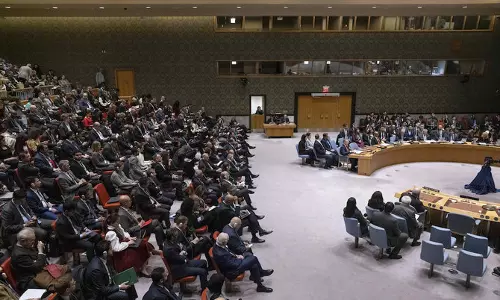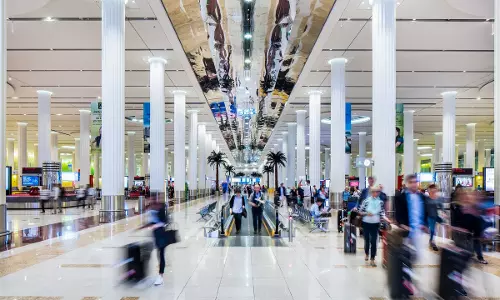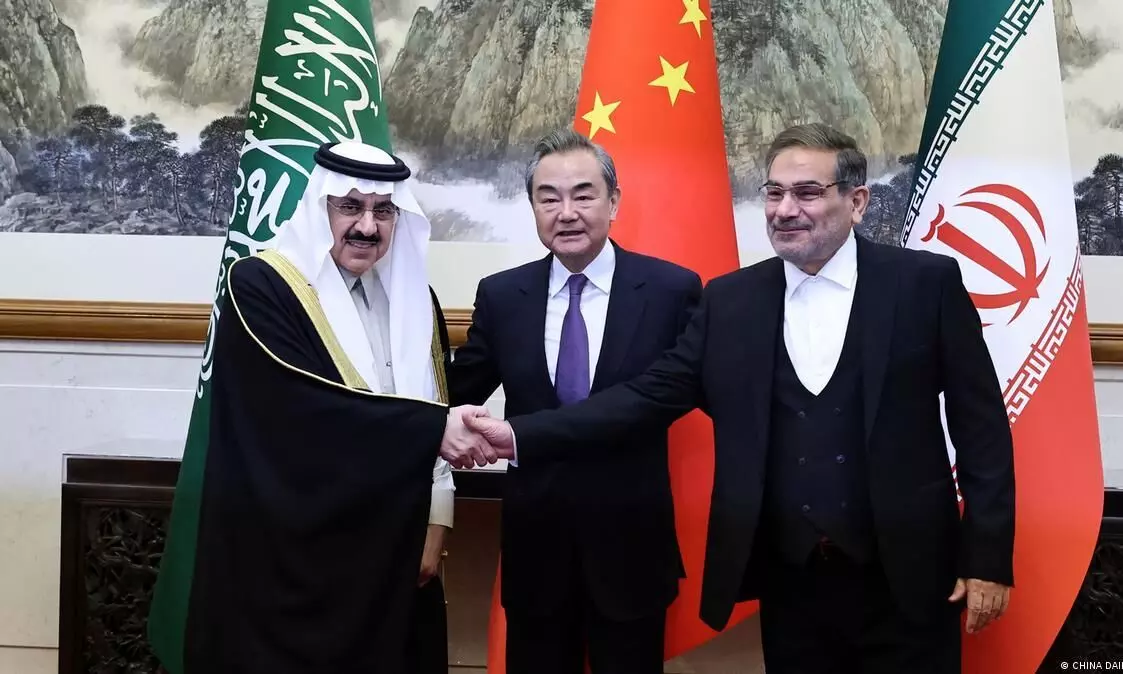
Resumption of Saudi Arabia-Iran diplomatic ties: EU and regional countries welcome move
text_fieldsLondon: The European Union on Saturday welcomed an agreement between Middle East rival powers Saudi Arabia and Iran to resume diplomatic relations.
“The European Union welcomes the announced agreement on resumption of diplomatic relations between the Kingdom of Saudi Arabia and the Islamic Republic of Iran, and looks forward to its implementation,” said Peter Stano, EU external affairs lead spokesman.
“The EU acknowledges the diplomatic efforts leading to this important step,” he said in a statement. “As both Saudi Arabia and Iran are central for the security of the region, the resumption of their bilateral relations can contribute to the stabilization of the region as a whole.”
Saudi Arabia and Iran on Friday agreed to reestablish relations after years of hostility and reopen their embassies within two months. They will also re-establish trade and security relations.
The agreement, signed by Iran's top security official, Ali Shamkhani, and Saudi Arabian national security adviser Musaed bin Mohammed Al-Aiban, agreed to re-activate a 2001 security cooperation accord, as well as another earlier pact on trade, economy and investment.
The deal brokered by China was announced after four days of previously undisclosed talks in Beijing between top security officials from both countries. China's top diplomat, Wang Yi, described the deal as a victory for dialogue and peace, adding that Beijing would continue to play a constructive role in addressing tough global issues.
Years of tension between Saudi Arabia and Iran, two Middle East powers, had threatened the stability and security in the Gulf and helped fuel conflicts in the Middle East from Yemen to Syria.
Saudi Arabia cut ties with Iran in January 2016 after demonstrators stormed its embassy in Tehran following Riyadh’s execution of a prominent Shia Muslim cleric. The ties between the Sunni and Shia-led neighbours have since often been strained.
According to a statement issued by Iran, Saudi Arabia and China, ‘the agreement includes their affirmation of the respect for the sovereignty of states and the non-interference in internal affairs’.
‘Promoting peace and stability and achieving de-escalation of tensions in the broader Middle East are key priorities for the EU,’ Stano said, adding that the bloc ‘remains ready to engage with all actors in the region in a gradual and inclusive approach, and in full transparency.’
Saudi Arabia blamed Iran for the drones and missile attack on major Saudi oil facilities in 2019, causing damage and disruption to production as well as attacks on tankers in Gulf waters. Iran had, however, denied the allegations.
France welcomed the agreement and its Foreign Minister Catherine Colonna said that her country supports dialogue and any initiative that can contribute in a concrete way to de-escalating tensions and strengthening regional security and stability.
Colonna reiterated her call on Iran to renounce its destabilizing actions in the region.
Egypt too expressed appreciation for the “important step” taken by Saudi Arabia and Iran, which will remove tension in regional relations, and affirms the Kingdom’s adherence to the UN principles of respect for states’ sovereignty, non-interference in their internal affairs, and enhancement of regional security and stability.
Spokesman of the Egyptian Presidency Ahmed Fahmy said that his country looks forward to this development having a positive impact on Iran’s regional and international policies and that it constitutes an opportunity for Iran to adopt a policy that takes into consideration the legitimate concerns of the countries of the region in a way that enhances opportunities for cooperation and consolidation of positive relations.
Tunisia also issued a statement welcoming the deal and commended the role China played in forging the agreement. The foreign ministry expressed hope that the agreement will contribute to strengthening security and stability in the region, remove all causes of tension, and establish a new phase of cooperation between them.
Although with skepticism, the US too cautiously welcomed the announcement. White House National Security Council spokesman John Kirby said the administration supported ‘any effort to de-escalate tensions in the region’. ‘It really does remain to be seen if Iran is going to meet their obligations’ he added.
Thanking China for brokering the deal, UN chief Antonio Guterres said that he was ready to help efforts ‘to ensure durable peace and security in the Gulf region’.


















